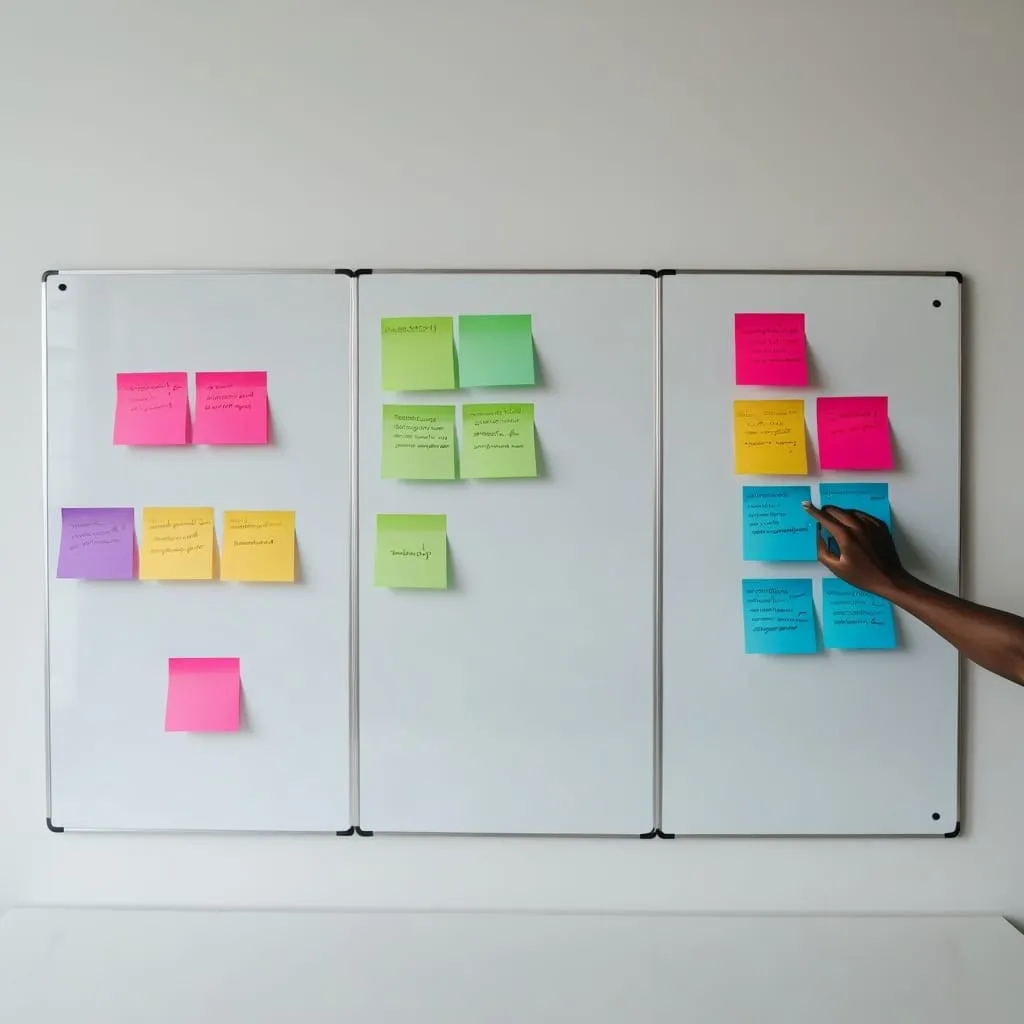Time Management: The Art of Saying No
We've all heard about the time management strategies of billionaires like Elon Musk and Bill Gates. But let's face it, most of us aren't running multi-billion dollar companies or trying to colonize Mars. We're just regular folks trying to juggle work, family, and maybe squeeze in a bit of Netflix time. That's where the art of saying no comes in handy.
Think about it. How many times have you said yes to something you really didn't want to do? Maybe it was a party you weren't excited about, or a project at work that wasn't really your responsibility. We've all been there, right? But here's the thing: every time you say yes to something that doesn't align with your goals or values, you're saying no to something that does.
Let's talk about Hector Saldana for a minute. He was the big boss at Apple Latin America, and he had a pretty interesting way of handling meetings. He'd pop in and out of conversations like a jack-in-the-box on caffeine. Sounds chaotic, doesn't it? But there was a method to his madness. Saldana knew that not every conversation needed his full attention. He was a master at saying no to the stuff that didn't matter so he could focus on what did.
Now, I'm not saying you should start bouncing in and out of your next Zoom meeting (your coworkers might think you've lost it). But there's a lesson here. It's about being selective with your time and energy.
Think of your time like a bank account. Every time you say yes to something, you're making a withdrawal. The trick is to make sure you're investing in the right things. You wouldn't blow your paycheck on stuff you don't need, right? So why do that with your time?
Let's bring this down to earth a bit. Say you're a freelancer and someone offers you a job. It doesn't pay well, and it's not really in your wheelhouse. Your first instinct might be to say yes because, hey, work is work, right? But what if saying no to that job opens up time for a better opportunity? One that pays more and actually gets you excited?
Or maybe you're a parent. You're already juggling a million things, and then the PTA asks you to organize the school bake sale. It's tempting to say yes because you want to be involved. But if saying no means you get to spend a relaxed evening with your kids instead of stress-baking 200 cupcakes, isn't that a better use of your time?
Here's the thing about saying yes to everything: it's like trying to catch every ball thrown at you. Eventually, you're going to drop something. And let's be honest, it's usually the important stuff that gets dropped first. Your personal projects, your health, your relationships – these are often the first casualties of an overpacked schedule.
But when you start saying no, something magical happens. You create space. Space to breathe, space to think, space to focus on what really matters to you. It's like decluttering your schedule. And just like decluttering your home can make you feel lighter and more in control, saying no can do the same for your life.
Now, I know what you're thinking. Saying no is easier said than done. We're wired to want to please people, to be helpful, to be seen as team players. Saying no can feel uncomfortable, even scary. What if people think you're rude? What if you miss out on something important?
Here's a little secret: saying no gets easier with practice. It's like a muscle you need to build up. Start small. The next time someone asks you to do something you're not thrilled about, take a moment before automatically saying yes. Ask yourself: Does this align with my goals? Is this a good use of my time? If the answer is no, well, you know what to do.
And here's another tip: you don't have to say no outright if that feels too harsh. There are softer ways to decline. "Thanks for thinking of me, but I'm focusing on other priorities right now" works wonders. Or how about, "I can't commit to that right now, but maybe next time"? The key is to be polite but firm.
Let me tell you about a friend of mine. She's an entrepreneur who was constantly overwhelmed by client requests. She'd say yes to everything, thinking it was good for business. But she was burning out fast. One day, she decided to start saying no to projects that didn't excite her or align with her company's direction. Guess what happened? Her business actually grew. She had more energy to focus on the projects she loved, and her work quality improved. Plus, she was a lot happier.
Another buddy of mine, a working dad, was always running from one commitment to another. Work, family, social engagements – he was spread thin. He started saying no to non-essential social events, and suddenly he had time to help his kids with homework and have actual conversations with his wife. His stress levels dropped, and his family relationships improved.
These stories aren't unique. When you start saying no, you're not just managing your time better – you're managing your life better. You're taking control, setting boundaries, and focusing on what truly matters to you.
There's a psychological aspect to this too. Every time you say yes to something you don't really want to do, you're basically telling yourself that your time and priorities don't matter. But when you say no, you're asserting your worth. You're saying, "My time is valuable, and I get to choose how I spend it." That's pretty empowering stuff.
So how do you start incorporating the art of saying no into your life? Start by getting clear on your priorities. What are your big goals? What's important to you? Once you know that, it becomes easier to spot the things that don't align.
If your goal is to write a book, saying no to that Netflix binge becomes easier. If your priority is your health, saying no to that late-night snack makes more sense. It's about aligning your actions with your goals.
Remember, saying no isn't about being negative or unhelpful. It's about being intentional with your time and energy. It's about making room for the big yeses in your life.
So the next time you're faced with a request or an invitation, take a moment. Ask yourself if it aligns with your goals and values. If it doesn't, don't be afraid to say no. You might just find that saying no opens up a world of possibilities.
In the end, time management isn't just about squeezing more tasks into your day. It's about making sure you're spending your time on the right tasks. And sometimes, that means saying no to the wrong ones.
So go ahead, flex that 'no' muscle. Your future self will thank you for it. After all, in the words of many successful people, "Learning to say no is the key to saying yes to what truly matters." And isn't that what we all want? To live a life filled with the things that truly matter to us? I don't know about you, but that sounds like a pretty good deal to me.






